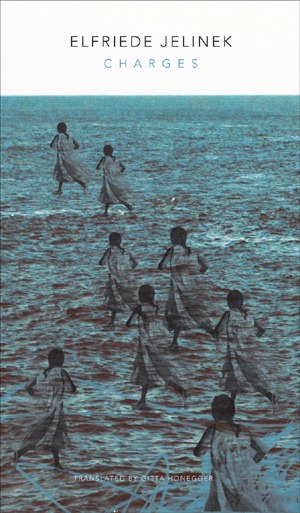
This article is a preview from the Spring 2017 edition of New Humanist. You can find out more and subscribe here.
Charges – The Supplicants (Seagull) by Elfriede Jelinek
In November 2012, a group of refugees and asylum seekers marched 20km from the Traiskirchen holding facility to central Vienna, supported by several anti-fascist and socialist groups. They set up camp on a grassy area next to one of the city’s most famous churches. A couple of weeks later, some moved inside the church and went on hunger strike. They were protesting against the living conditions in the holding facility and demanding better interpreters, access to language classes and the right to work.
Their presence triggered a heated debate in Austria about the treatment of refugees. In response, Austrian playwright and novelist Elfriede Jelinek wrote Die Schutzbefohlenen, now available in an English translation for the first time. Suffering from agoraphobia, she rarely leaves her home on the outskirts of the Austrian capital and observed the events in late 2012 via news reports and social media.
The central piece – Jelinek calls it a play but it reads more like an interior monologue, shifting abruptly, often mid-sentence, between the perspective of the refugees inside the church and that of the locals – is a blistering indictment of European asylum policy and the indifference (or hostility) of some Europeans towards the newcomers. Many of the themes are familiar from the liberal press. Yet, voiced by a chorus of refugees, those same arguments have far greater power to disturb.
“We only come in bulk, no longer individually, never again, even though they pull us out one by one,” the narrator says. “When will we be somebody again?” In one of many references to classical mythology, Jelinek alludes to Troy’s greatest fighter, whose body is protected from further harm after his death by the gods. In the “Coda”, added along with an appendix in late 2015, set on a barely seaworthy boat crossing the Mediterranean, the narrator exclaims, “When I think of the drama they made of Hector’s corpse! And that was just one man and nine days of outrage from the gods. But our motor not running doesn’t concern them at all, it doesn’t concern anyone but us.”
Elsewhere, Jelinek confronts perceived injustices in Europe’s asylum system. Opera singer Anna Netrebko and Tatyana Yumesheva (daughter of Boris Yeltsin), both of whom have been given Austrian citizenship, are invoked as symbols of a corrupt system that only welcomes those with money or influence. “We show respect,” the protagonist says. “We bring different talents and strengths, but, unfortunately, no money.” Earlier, more bluntly, the chorus proclaims, “our being has no currency”.
Jelinek delights in wordplay and (thanks to a masterful translation by Gitta Honegger) the reader is frequently amused and then abruptly discomfited by the linguistic slippages that litter the text. “We don’t have anyone’s sponsorship,” the protagonist laments, “the only ship we had was an old, sinking boat.” At times her language becomes acerbic, even obscene. Western Europe is described as “a society where human rights are raided, raked up, thrown on a pile and run over by a bulldozer” and the donations made by the Viennese as “pitiful crap”.
Jelinek does not shy away from controversy. In a rare and extensive interview, printed at the end of the English translation of the work, she expressed her frustration to Honegger at being unable to intervene politically. “I am trying,” she said, “but I don’t have the feeling that it affects anything.” Honegger demurred. “You disturb,” she said.
Recent productions of the play in Austria, involving a cast of refugees and asylum seekers, seem to bear this out. On several occasions, groups of right-wing protesters have disrupted the performance, spraying artificial blood and brandishing fliers that declare multiculturalism “dead”.
These productions also mitigate the charge of appropriation. Speaking with Honegger, Jelinek acknowledged the presumptuousness of “turning myself into one of those refugees, something I am not at all entitled to”. Her protagonist declares, “Unheard is what we are”, and by putting her own words into the mouths of refugees, Jelinek risks perpetuating this. But in theatres across Austria, using Jelinek’s text, refugees are reclaiming the right to be heard.
“Yesterday all of them were still human,” Jelinek writes in the appendix. “Today I cannot look at them since yesterday thousands, tens of thousands more arrived.” In this engrossing, deeply troubling work, Jelinek charges us to keep looking at these people, who are, after all, still human.

